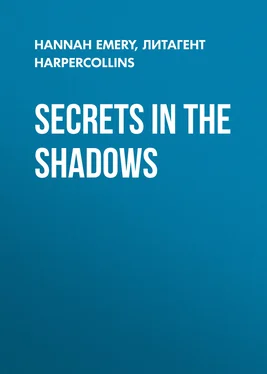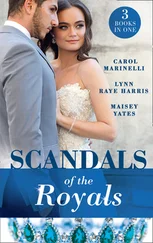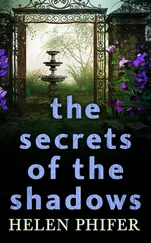Oh, how different , Louisa thought each night as she lay underneath a cool eiderdown and listened out for the sound of the sea that never came. Louisa’s gift was stronger than ever: she knew exactly what the teacher would be wearing every day, and she knew whose knuckles would be rapped and what would be served for lunch. But she said nothing now. If she ignored the visions, then perhaps they would eventually go away. Her vision of her mother had been too late. No good could come of them.
So, because Louisa had apparently nothing to offer them, and perhaps because her face was plain and her hair a little too dark for her pale complexion, the other girls at her school made no real attempts to befriend her, or to poke fun at her. They simply let her be.
At weekends, Louisa and her father took little outings. They walked to the park, the duck pond, the high street. Her father spent more money than her mother ever had done and Louisa’s tummy swelled ever so slightly with a weekly bag of fudge from Spencer’s sweet shop. The outings were strange at first, and Louisa and her father spoke little. Words seemed to be difficult to find now, and when Louisa did push a word from her lips, her father might simply nod, or shake his head, or give a small smile.
After a year, Louisa’s life still seemed to be colourless. And the snow that fell that Monday made it even whiter, even more unreal. School was out of the question, Nancy the maid said that morning as she cleared away Louisa’s toast crumbs. And Louisa’s father would stay at home too.
Louisa sat and watched her father eat the last of his eggs. He ate slowly, and neatly. Her mother had always made eggs that oozed orange onto the plate and the bread. Her father’s eggs were more like foam and he cut them carefully so that there was no mess on his plate. He could, Louisa supposed, have just eaten them off the table.
‘What will we do, then?’ he asked Louisa once he had swallowed the last of his breakfast.
Louisa shrugged. She didn’t think they would be able to go for a walk in this weather.
‘Come with me,’ he said, as he stood and pushed his chair back. He took Louisa’s hand, led her to the coat stand in the hallway, and offered her the red wool coat that he had bought her a few weeks ago. Louisa put it on. The buttons were gold, and made her feel as though she was a queen.
When they both had their coats and shoes on, Louisa’s father opened the front door. The snow was piled so high that they could see nothing beyond it. Louisa’s father pushed at it with both of his hands and then, as though he was a boy of ten, launched himself on top of it. Snow puffed out from underneath him, and his face turned red.
He’s gone mad , Louisa thought.
And then she threw herself into the snow too.
Freezing water raced through her shoes and her wool coat, and Louisa shivered. She felt a strange laugh escape her mouth. Guilt coursed through her immediately: she had vowed that she would never laugh again, not unless she found her mother.
But then her father laughed: a deep, loud laugh that made Louisa giggle more. She choked and wiped her eyes with her cold, wet sleeve.
‘I’m not used to snow. We hardly ever get any in Blackpool,’ she said.
Her father didn’t correct Louisa’s present tense. He smiled and wiped a piece of ice from his rounded jaw. ‘It’s because of all the salt near the sea. It stops the snow from settling.’
Louisa nodded, her face frozen and all her words used up, for now. But it had been a start. A very good start.
When they had thrown snowballs, and made a tall snowman with currants for eyes, a stone nose and a shoelace mouth that insisted on falling and dangling on one side, Louisa and her father went back inside. Louisa changed into some dry clothes and her father asked Nancy to make them some hot chocolate.
‘I don’t often have hot chocolate,’ Louisa’s father said as they sat sipping.
‘It’s nice,’ Louisa said.
‘Nancy is good to me.’
‘Yes. She’s nice.’
There was a stretch of silence dotted with sipping. Louisa looked out of the window. The sky hung down heavily, yellow grey. The snow would continue forever, it seemed.
‘Mum talked about somebody,’ Louisa said all of a sudden, leaning forward a little, her heart racing. ‘She talked about a boy with purple eyes. She talked about finding him. But I don’t know who he was.’
Louisa’s father scratched his chin and shook his head. ‘No,’ he said sadly, ‘I don’t know who he was, either.’
‘Perhaps if I could find him, he would be able to tell me where Mum went?’
Louisa’s father put down his hot chocolate and Louisa saw that he hadn’t finished it. ‘Perhaps.’
‘Is somebody else living in my house now?’ Louisa asked. Her toothbrush and clothes and a couple of dolls she had outgrown had been parcelled up and sent to her a few weeks after she had moved into her father’s, and she still hadn’t looked in the box properly. She felt that if she did, a sorrow too deep to recover from would pull her in. So the things that had been sent were still untouched, in Louisa’s big fancy wardrobe next to her new, soft bed.
Her father sighed sadly. ‘Yes. It’s being used as a guest house now.’
Louisa swallowed a big gulp of chocolate and scalded her throat. So that was it. She couldn’t go back. ‘It feels strange to think of somebody else brushing their teeth at my sink,’ she said, wondering if her father would understand.
He nodded, and sighed again.
‘I can’t sleep at night,’ Louisa said next. It was as though her words were suddenly dripping out with no control now, like her mouth was a broken tap. ‘I can’t seem to sleep without the sounds of the sea.’
‘I see. And a girl needs her sleep.’
Louisa nodded, pleased that her father appeared to be listening to her and thinking about what she had said. It seemed so long since she had had a conversation, a real one where she felt like something had happened at the end of it.
‘You know,’ her father said after a little time, ‘if you hold a seashell up to your ear, then you can hear the sea.’
Louisa raised her dark eyebrows, interested. The idea reminded her of something her mother would have said, and made Louisa’s insides tremble a little with grief.
‘I’ll try to get you a shell so that you can listen to it each night before bed. We need you to sleep well.’ Her father stood and left the room, and Louisa finished her hot chocolate, and when she was sure that her father wasn’t coming back, had the rest of his too.
That night, even though going out was out of the question, and even though Louisa and her father were goodness knows how many miles from the coast, Louisa saw that there was a small, shiny seashell on her pillow. It was cream, with tiny pink veins running through it. It was beautiful.
Louisa held the shell to her ear to hear the crashing of the sea, and wondered how her father had managed to find it for her.
And as she sank into bed, and listened to the waves, a little bit of colour seeped back into Louisa’s world.
Grace, 2008
‘I’m going to go and get us some lunch,’ Grace says.
Ash Books has been busy on its second morning of business, making the whole venture seem real and feasible. Two groups of Eliot’s students have already responded to an email from him promoting the shop by turning up and wandering around the small section of plays, giggling and jostling each other and fighting over the only copy of Talking Heads .
‘Tuna salad sub for me please,’ Elsie says, rooting in her purse.
‘Don’t worry about the money. I don’t think we need to split things down to the penny now that we have a business together.’
Читать дальше












